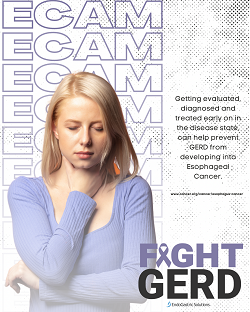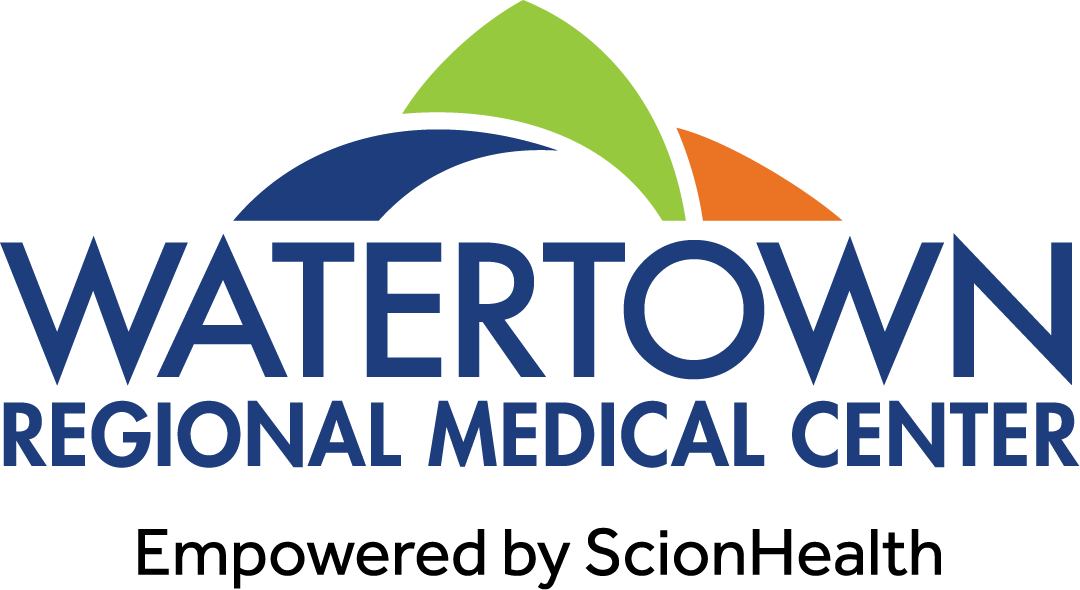Esophageal Cancer Awareness Month
April 6, 2023

April is Esophageal Cancer Awareness Month
The month of April each year is dedicated to the observance of Esophageal Cancer Awareness and education around the risk of Esophageal Cancer posed by persistent heartburn or GERD (gastroesophageal reflux disease.)
An estimated 1 in every 5 American adults suffers from GERD. It is a chronic condition caused by changes in the gastroesophageal valve that allow contents to flow from the stomach back into the esophagus. Left untreated, GERD can be a lifelong disease that often can lead to bothersome symptoms and potentially more serious health conditions.
Typical symptoms of GERD include:
- Burning sensation in the chest (heartburn)
- Regurgitation of food or sour liquid (acid reflux)
- Difficulty swallowing (dysphagia)
Atypical symptoms of GERD include:
- Sensation of a lump in the throat
- Asthma
- Chronic dry cough
- Chronic sore throat
- Laryngitis and hoarseness
- Dental erosions
- Non-cardiac chest pain
GERD is caused by an anatomical issue. The acid our stomach produces is important for digestion, killing harmful bacteria, and helping with the absorption of electrolytes and other nutrients from the foods we consume. GERD occurs when the valve between the stomach and the esophagus is not working properly and fails to keep acid and stomach contents in the stomach.
When left untreated, GERD can lead to other serious health complications including:
- Respiratory complications
- Inflammation or narrowing of the esophagus
- Damage to the throat or lining of the esophagus
- Barrett’s Esophagus (pre-cancerous cell formation)
- Esophageal cancer
The best way to diagnose Barrett’s Esophagus or Esophageal Cancer is to talk to your primary care doctor about your symptoms and determine next steps. These next steps may include a requesting that you undergo an upper endoscopy (EGD) or other diagnostic procedure and a referral to a specialist to investigate the esophagus and evaluate its condition.
Lifestyle changes, and medications may offer mild GERD symptom control, but they do not stop or prevent reflux. It is important for you to know that there are also endoscopic and minimally invasive procedures, like the TIF procedure for reflux, that can help rebuild and restore proper function to the faulty gastroesophageal valve and relieve your GERD.
The TIF procedure is a solution for the anatomical problem. It aims to fix the root cause of GERD to prevent further esophageal damage. The TIF procedure allows for the full repair of the faulty valve and prevents stomach contents from refluxing back into the esophagus. This option can significantly improve quality of life for patients.
Clinical studies show that most patients who undergo the TIF procedure are no longer dependent on medications and can eat and drink foods they avoided for many years. Reflux no longer impacts their lives like it previously did.
Early screening and detection are key. Please do not delay in contacting your primary care doctor to schedule a reflux evaluation or visit our GERD treatment page for more information about the services available. If you would like to schedule an appointment to be seen by general surgery, call 920.206.3042.
